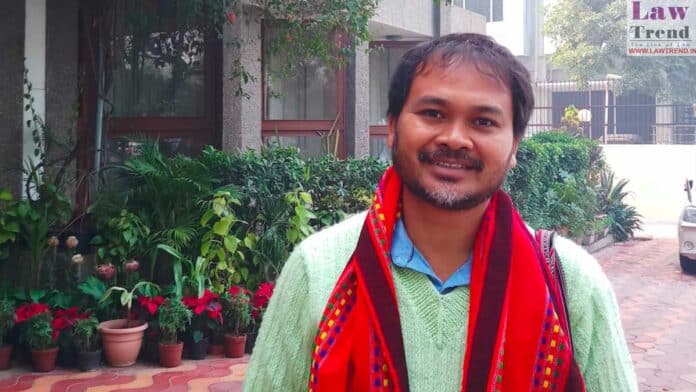The National Investigation Agency (NIA) told the Supreme Court on Monday that bail cannot be granted to Assam MLA Akhil Gogoi as he is a kingpin of Maoist activities in the state even as the lawmaker said cases against him were a result of “political vendetta”.
The independent MLA, who was allegedly vocal against the BJP-led Centre during the anti-Citizenship (Amendment) Act (CAA) protests in Assam in December 2019, moved the top court against a February 9 order of the Gauhati High Court allowing an NIA court to proceed with the framing of charges in one of the two cases against him.
A bench of Justices V Ramasubramanian and Pankaj Mithal, which extended the protection from arrest to Gogoi till March 3, said it would hear the matter on Friday.
As the hearing commenced, Solicitor General Tushar Mehta, appearing in the court on behalf of the NIA, referred to the chargesheet filed by the agency and said Gogoi is a kingpin of Maoist activities in the northeastern state.
“I am ready to show the seriousness of the offence. He is associated with the CPI(Maoist). He sent cadres to train in Maoist camps and conspired and orchestrated widespread blockade in Assam, paralysing government machinery, and provoked a mob to cause damage to public property,” Mehta said, adding that 64 FIRs have been filed against the legislator.
Senior advocate Huzefa Ahmadi, appearing for Gogoi, argued that there is an overarching ground of political vendetta.
“Gogoi is a political leader and an elected representative of people. He is merely opposed to a particular political dispensation, that is why they want to put him in jail,” Ahmadi said.
The bench said it would take up the matter on Friday.
Earlier, the high court had allowed the NIA to seek framing of charges in the special court against Gogoi and three of his associates in connection with the anti-CAA protests and their suspected Maoist links.
The high court’s order had come on an appeal filed by the premier investigation agency challenging the order of the NIA court that gave a clean chit to the four.
A division bench of the high court, comprising Justices Suman Shyam and Malasri Nandi, had asked the agency to go ahead with the framing of charges after reopening the case.
“The high court has accepted the NIA’s plea to reopen the case and frame charges against the four persons. The case will be heard again in the special NIA court,” Gogoi’s counsel Santanu Borthakur had said.
The MLA has approached the apex court against the order.
The other three accused are Dhaijya Konwar, Bittu Sonowal and Manash Konwar, all of whom got bail in one of the NIA cases and were released from prison. Gogoi was the only one whose bail plea was rejected by the court and he was released after spending 567 days in jail once Special NIA Judge Pranjal Das cleared him, along with the three others, of all charges.
The Assam legislator and the three other accused were asked to appear before the special NIA court on February 23.
The NIA is investigating two cases against Gogoi related to the anti-CAA protests. In one of those, the NIA court granted him bail, which was upheld by the high court in April 2021 after the probe agency challenged it.
The RTI activist continued to be in judicial custody as he was denied bail in the second case and was being investigated by the NIA.
On July 1, 2021, the NIA court released Gogoi and his three associates in the anti-CAA protest case and observed that there was nothing to indicate that the “talk of blockade” threatened the country’s economic security or was “a terrorist act”.
The NIA then moved the Gauhati High Court with an appeal to allow it to frame charges under various sections, including the provision dealing with sedition, of the Indian Penal Code (IPC) and the Unlawful Activities (Prevention) Act (UAPA).




